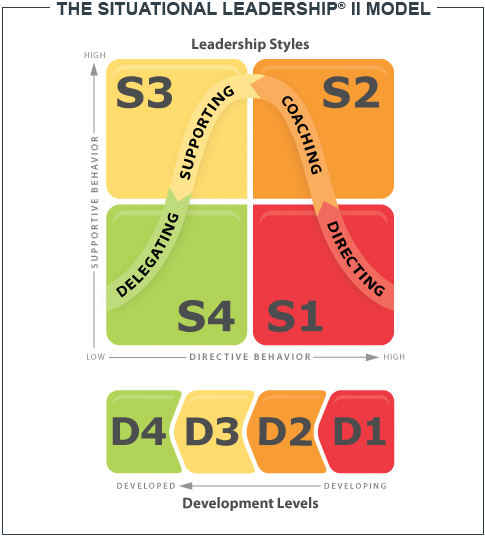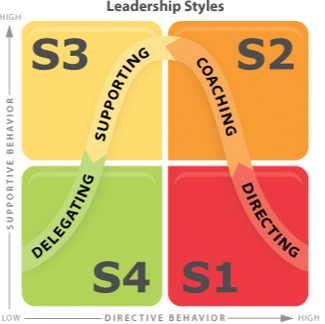"You either have to be part of the solution, or you're going to be part of the problem." I'm running into this phrase lately in the business context (which I will mention that it's used out of its original context - from the Googling that I did, I found that it was originally spoken by Eldridge Cleaver, an American writer and political activist: "There is no more neutrality in the world. You either have to be part of the solution, or you’re going to be part of the problem"). At first I was like "wow yeah totally" but it is starting to bother me. I realized that this is potentially a dangerous way of thinking because it oversimplifies things that shouldn’t be.
Here’s an example: Meet Adrian. He likes to plan everything way in advance because he gets anxious when the deadline is even remotely close. Meet Breanne. She thrives and performs better under pressure, so she prefers to start things when they’re closer to the deadline. Meet the team. Most of the team members think like Adrian. Breanne is the oddball in the team. Breanne is tasked with running a large company event, which involves doing a lot of arrangements with different venues and vendors. Breanne thinks that it’s ok to start planning 2 weeks before the event; that’s more than enough time. But the rest of the team doesn’t. They’re getting anxious because nothing has gotten off the ground a month before the event. So the team’s eyes naturally drift towards Adrian, who gives into the pressure and starts planning. Here’s the question: is Adrian part of the solution or the problem? Which solution? Which problem? It depends on what we’re talking about. Breanne’s thought that planning 2 weeks ahead may have been too short. Adrian may have increased the odds that the event will run well. But what should’ve been Breanne’s task is now on Adrian’s plate. Breanne is bored while Adrian is overwhelmed. What do we prioritize? Short-term success of the event or the long-term health of the team? What risks are the team willing to take? Were the tasks not assigned correctly in the first place? What role would Breanne thrive best in? I don’t have answers; only more questions. But I think these are questions that managers should be thinking about – not only whether someone is part of the solution or the problem. The world isn’t as binary as we may want to think it is.
0 Comments
In the past 7 years I have seen countless cases on delegation done wrong - to be more exact, delegation done in the wrong context. What do I mean by context? Have a look at the following diagram (the Situational Leadership II Model is developed by the Ken Blanchard Companies): Allow me to briefly explain what this model is about. Let me start with the D's on the bottom. D stands for development - it's the levels of confidence and competence of the learner. I'm blanking out of the exact names of each level since it has been a while since I last read the book, but here are the nuances:
"S-Zero" and "S-WHAT?"
So I part with these questions (that I don't have the answers to... I'm still learning. I need your intel.):
In my last post, I wrote about taking ownership and making the choice to own one's role. That memorable choir rehearsal happened back in July 2018. Since then, I started to really think about what choices I've made in the past year, past decade, and in my entire life in general. There were quite a few opportunities or change in circumstances that would just come at my direction and I would just... roll with it. Looking back, I don't think I made that many decisions. Then it dawned on me that it sounded very much like I wasn't taking ownership of my own life. This week, I thought I'd write about the two significant choices I made this fall as an attempt to get my life back. Choosing to be a choral singer
Choosing to be a board member
You may think that these choices that I have made aren't that big of a deal, but to me they look shiny and special because I haven't had a lot of experience deciding on things... like what I want to actually do with myself. My hope is that in the long term, through decisions like these, I will feel more comfortable to make bigger, bolder decisions.
And take ownership of my life like what I did with that "Herr". Earlier this year, I sung the Ein deutsches Requiem by Brahms. I invite you to take a moment to listen to one of my favorite movements from that piece: My favorite moment in this piece is from 2:42 where the trombones start to pick up all the way to the triumphant "Hölle, wo ist dein Sieg?" ("Hell, where is thy victory?") at 5:41. At this time, it transitions to the next section with the altos starting the fugue with a warm and bold "Herr".
I'm an alto so I was one of the singers who started off with "Herr". During rehearsals, I remember being somewhat sheepish to start it. But during one rehearsal, my choral director made us sing that note by ourselves. Meaning, my director pointed at the first alto in the front row, then the second, then the third... and we sung that note one by one. Everyone else is silent. Your voice is heard by over 100 (!) other singers - quite vulnerable and humbling! After a good chunk of us sung that note one by one, the director told us to sing exactly the way we did when we sung one by one, except to sing at the same time. And that was when music happened. I was thinking about that magical moment when the sound coming out of the alto section was not just a mere note - it was music. My working hypothesis is that since all of us were held accountable for that note, one by one, and as a result we each took ownership of that note. Each one of us made a conscious choice to own it. At that point I realized that this phenomenon doesn't occur only in choirs or orchestras. It occurs in any organization where people accomplish something together - when each individual chooses to takes ownership of their role, that's when the magic happens. That rehearsal - that "Herr" - proved to be an important lesson for my management career but also for my life in general. More on that next week. |
AuthorI'm Candice and I doodle with the intensity of the doomguy. Categories
All
Archives
March 2021
|






